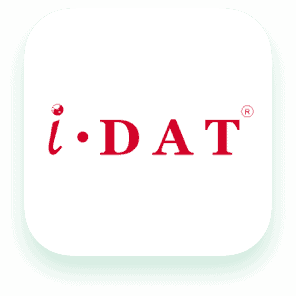An Interview with Maria English
Maria English is the Director of Admissions and Marketing at Dulwich College Suzhou, near Shanghai, China. She has also worked at Shanghai American School and The Western International School of Shanghai in China and at Shu Ren International School in California. Maria has been a regular contributor of articles to the IAB and recently presented on “Equity and Diversity in Admissions” at the OpenApply online conference “The Road Ahead” in April 2021. IAB editor Robin Berting recently interviewed her on the topic of Admissions and Identity.
IAB: Let’s start by talking about your title, Director of Admissions and Marketing. When I look at job postings these days, it seems to me that more and more job descriptions include both admissions and marketing functions. The connection might seem obvious on the surface, but it could be argued that admissions and marketing are really two different animals, requiring different skill sets. What kind of marketing do you do and how does that fit with your admissions work?
ME: I’ve worked in four different schools and the work of Admissions and Marketing is always closely related, yet, operationally totally different. I’ve worked at schools that have had as few as 100 students to one with 3000 and the two functions really come down to human resources. In a smaller school (less than 1000 and with a high application yield rate), it is definitely possible to combine the two functions into one role with the right platforms in place to help automate or collect your data. Larger schools will need to separate the two as the workload would spread one person too thin. Admissions validates the market research that comes from different marketing campaigns. Admissions staff are the ones who talk to the families, who know what is going on in the community and can really give life and breath to the data. My analogy would be that Marketing is the brain but Admissions is the heart.
IAB: I love the analogy! China is such a major player on the world stage now and there are so many international schools there. A lot of our readers who haven’t worked in China – myself included – are really curious to know what it is like to live and work there.
ME: COVID has really changed the world in so many ways and it’s been amazing how China has responded. I would say most schools are about 90% back to pre-COVID operations, but with some restrictions on visitor access (including parents), large events and travel.
China can be fast and slow at the same time. For example, it’s essentially a cashless economy. I have not used one bill or coin in the last 6 months and everything is paid by our QR codes on WeChat or Alipay. However, to get a bank account, you can sit at the bank for half a day and then have to return again a week later because something was inputted incorrectly!
With the borders not very porous at the moment, it can be hard to navigate the feelings of homesickness. Feeling connected is not easy unless you are willing to put yourself out there and try to make friends who essentially will be your support on the ground. I think it’s been a real challenge and that will continue into 2022 for those expats who have not had the ability to return home or have family visit them.
IAB: You have been in China for a while now. How has the landscape of international schools changed in your time there? Apparently, demand for an international education from locals has increased dramatically in recent years (see article by Julie Terry on page 40)
ME: Absolutely. The international school landscape has changed as quickly as the rest of the country in terms of pace and scale. The wealthy Chinese are driving the demand for private education, leading to the opening of new schools each year. There are two main types of private education available in China. First is the “traditional” international school open to foreign passport holders only. These schools have relative freedom to implement foreign frameworks of learning, largely American, UK or IB. The second type consists of private schools intended for Chinese nationals, often known as bilingual schools. They have a certain number of foreign teachers and run a blended curriculum that has to meet the requirements of the Ministry of Education while borrowing practices or education philosophies from the international community (project-based learning, inquiry, A-levels, AP/DP courses, etc).
My biggest concern about this growth is that it is an economics and profit driven approach. There is money to be made in private education due to the incredible appetite for “Western” education that, to me, is simply repackaging a colonial point of view. I think it’s a dangerous path to go down and in some ways it feels like a lost opportunity – true innovation, justice and peace building are overshadowed by the pursuit of profit. I could do an entirely other interview for you on this topic alone!
IAB: A lot of international schools in China have the brand name of a famous school in the US or the UK such as Harrow or Wellington and in your case, Dulwich College. How important is the international brand to your school’s identity?
ME: A school brand is incredibly powerful in China. To leverage the name and brand just gives that extra edge of recognition that a stand-alone school does not have. As a group, we also have a strong network of support in terms of professional learning opportunities, human resources and global and local best practices. A brand certainly gives you a head start in China.
IAB: You mentioned in your presentation at the OpenApply “The Road Ahead” conference that, as a Chinese American woman working in a leadership role at an international school in China, you feel that perceptions have changed significantly over the past few years. Could you elaborate on that?
ME: I would like to think that changes are more about the industry being more inclusive and diverse, but I’m really not sure that is the case. The changes are more market driven. Still, as the market has shifted to an increase in the proportion of Chinese returnees and/or Chinese as a first language families, people in leadership who can connect culturally and linguistically have more added value. CX (customer experience) is becoming an embedded part of the admissions journey, so being able to connect culturally absolutely influences that admissions experience. In addition, there has been an overall elevation of the position of Admissions to the leadership level. In the last decade schools have realized the need to give Admissions a “seat at the table.” I am really proud to see so many women elevated to this level of leadership.
IAB: Speaking of inclusivity, a recent topic of discussion in many international admissions offices has been how to make our processes more inclusive, for example, for non-binary students. Has there been discussion in your school about applicants being able to self-identify in a gender neutral way as “X” or “other” or “non-binary” instead of simply as “Male/Female”?
ME: Yes – inclusivity is an important part of our well-being framework and is currently being audited, reviewed and implemented for the upcoming school year. However, I have not changed this on our application form just yet because I need to know that the journey for a student who identifies as non-binary will have the full experience of an inclusive community supporting them. It’s so much more than a label and I need to feel confident that the support is there from my school before I’m going to make any changes on our application form. For example, anyone who is not a native English speaker receives English support in our school from professionals who can support second language learner needs. Similarly, I need to know that, if a student identifies as LGBTQ, non-binary, etc, we also have a support network in place. One simple example is that we don’t have gender neutral washrooms yet. Still, we are moving in the right direction.
IAB: Events in 2020 – the murder of George Floyd and other African Americans at the hands of the police, and the rise of the Black Lives Matter movement – brought equity and diversity to the center of the conversation in international schools. You stated in your presentation that admissions professionals should be part of that conversation going on in our schools because we know the families as well as (or even better than) anyone else. Do you feel that you have made progress in your school on this front, whether it be related to equity and diversity or
anything else?
ME: This is an area that I am trying to lean into as I believe it is a watershed moment that I don’t want to see erased. We market that our schools will get our graduates into the best universities in the world—mainly meaning in the “West”. We market that we are internationally-minded but we don’t discuss how equality is not equity.
For Admissions, so much of what we do is sales—so it’s worth asking if we believe in our product. We have every right as members of our communities to hold our schools accountable to our mission statements. Positive change, peace builders, making the world a better place… these cannot exist if our graduates do not have a foundation of understanding for equity and how the world is structured—which historically has been to lift up some while holding down others.
We are starting our Diversity Equity Inclusion Justice (DEIJ) framework in alignment with our well-being framework at Dulwich. We have an exploratory task force which will curate resources and suggest different pathways to move forward. We realize that this is incredibly introspective and will require a lot of reflection and “looking under the hood” for us to truly want to change.
IAB: In your presentation, you also say that another way we, in admissions, can all make a difference is by checking our own biases, by slowing down and remembering that every family we meet is unique, no matter where they are from or which box they might seem to fit in. Can you give us any examples of prospective families that have pleasantly surprised you by not corresponding to your stereotyping of them?
ME: I make collective broad assumptions about certain cultures. For example, when I see a family from Korea applying, I assume the English level will be at a beginner or intermediate level at best.
I assume that they will want a translator, I assume that the child will be quiet and studious, I assume it’s a tiger parenting situation. And the next step that I take in my assumptions is to actually feel sad for the student — I start to assume that their student life is just all about academics and that their home life is fully encased around their education only. These assumptions then perpetuate actions in the admission process that are biased against this student. I will not read through the academic records critically but rely on the admission test results only. I will ask direct questions to the parents assuming that they don’t value free thinking or free play, etc. It just starts to snowball in a way that dehumanizes the family as I’ve allowed my bias to drive the interaction with this family.
It is important to mitigate and check one’s own bias and to slow down and really listen. It’s hard during high admission season when I want to turnover the applications quickly! At Dulwich College Suzhou, we’ve added a layer of parent interviews with Admissions to ask questions and really listen to the family. While it extends the application turnaround time, it has been incredibly valuable. During application review, should another colleague also make a biased assumption, we in Admissions can check our biases and advocate for the family if we have taken the time to really listen to them.
IAB: Tell us a bit about your family life. Your children have always lived in China but I assume that they have always gone to international school. How do you and your kids identify yourselves? And how do you navigate identity yourself?
ME: My four children were all born in China and have attended international schools. They are 12, 11, 7 and 5. They are biracial Chinese/Caucasian. We lived in the USA for two years (2018-2020) which solidified my older two in their identity as American. My two younger children have not made any firm commitment just yet! While I identify as Chinese American, I do feel that my career pathway, my marriage, and being a native English speaker gives me the identity here in China as “white adjacent,” meaning that I am perceived to align with white culture due to my upbringing, language and workplace. Something that I am trying to navigate as a parent and as a woman of color is to be mindful of those teachable moments with my kids as they start to make meaning of the world around them.
I want them to know that it is their experiences that make up their identity and not any label given to them. Simultaneously, I want them to explore, know and respect their ethnicity and nationality but ultimately, they get to decide how they identify.
Online interview from Zurich (Robin) and Suzhou (Maria), May 5th 2021
















 All Services
All Services